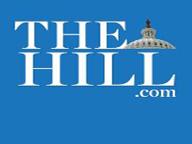School News
—
Dean Raghu Sundaram, Vice Dean Robert Whitelaw and Academic Director Ashish Bhatia discuss Stern’s new, integrated BS in Business, Technology and Entrepreneurship program for undergraduate business students in a feature story
—

Excerpt from Poets & Quants -- "New York University’s Stern School of Business today (July 31) announced the launch of a new STEM (Science, Technology, Engineering, and Math) four-year undergraduate business degree. The Business, Technology, and Entrepreneurship (BTE) program will enroll its first class of 30 to 50 undergrads in August 2021. That number will be closer to 30 in the first year, according to Robert Whitelaw, vice dean of the Undergraduate College at Stern, with the capacity to reach 60 students per cohort moving forward."
School News
—

Excerpt from Poets & Quants -- "New York University’s Stern School of Business today (July 31) announced the launch of a new STEM (Science, Technology, Engineering, and Math) four-year undergraduate business degree. The Business, Technology, and Entrepreneurship (BTE) program will enroll its first class of 30 to 50 undergrads in August 2021. That number will be closer to 30 in the first year, according to Robert Whitelaw, vice dean of the Undergraduate College at Stern, with the capacity to reach 60 students per cohort moving forward."

















